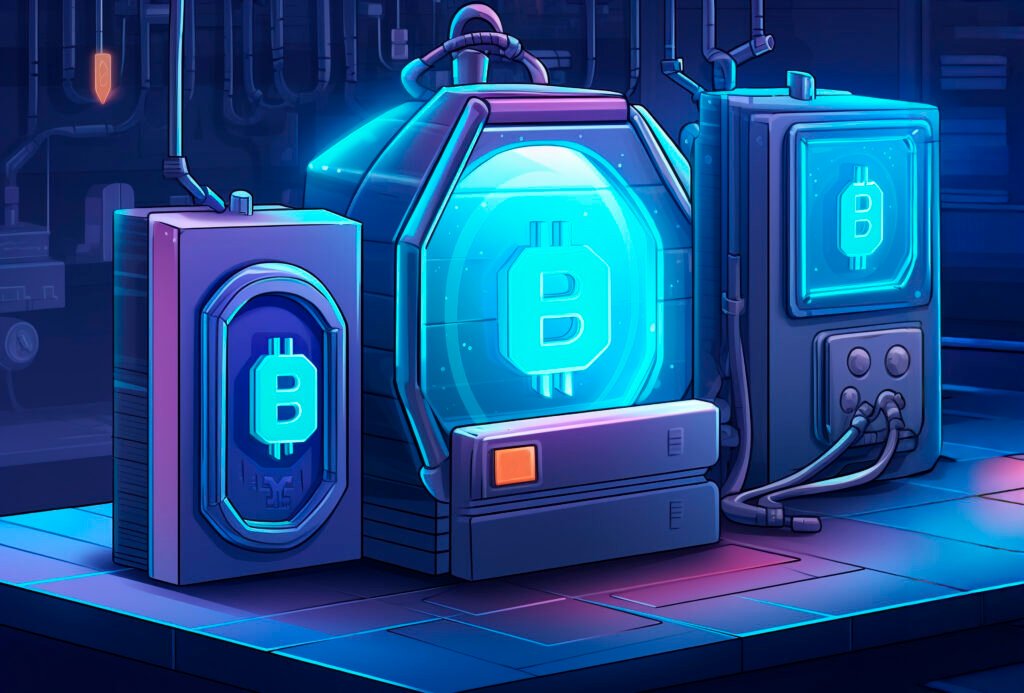In a world where every click can open doors to new opportunities—and risks—a secure crypto wallet isn’t just convenient; it’s vital. As cryptocurrencies grow ever more integrated into the mainstream—from everyday payments to institutional investments—protecting digital assets is no longer optional. Especially for users visiting Global Crypto Sports, where crypto and sports intersect, securing those digital assets ensures you stay both on the field and ahead of the game.
Whether you’re exploring a promising DeFi project, investing in NFTs, or just starting with Bitcoin, your crypto wallet is the front line of defense. But which wallet types should you consider? How do you pick the best crypto wallet 2025? What makes a cold wallet more secure than a hot wallet? Don’t worry—this guide walks you through it all clearly and confidently.
Key Crypto Concepts You Should Know
Before we dig into wallets, having a solid grip on these supporting ideas will make everything easier:
- Blockchain – Think of it as a transparent, unchangeable ledger that records every crypto transaction ever made. It’s decentralized and virtually tamper-proof.
- Hot Wallet – A wallet connected to the internet. Easy access, but more exposed to attacks.
- Cold Wallet – A wallet kept offline. More secure, but less convenient for quick transactions.
- Seed Phrase – Sometimes called a recovery phrase: a human-readable list of words that uniquely regenerates your wallet in case of loss or damage.
- Hardware Wallet – A physical device (like a USB stick) that keeps your private keys offline—often considered the most secure kind of cold wallet.
- Mobile Wallet – A smartphone app that stores your crypto. Convenient, ideal for everyday use.
- Decentralized Wallet – A wallet where you hold the keys; there’s no central authority—total control, but full responsibility.
- Wallet Backup – Making copies of your seed phrase or exporting private keys, stored securely offline.

Why a Secure Crypto Wallet Matters Right Now
- Rising Cyber Threats – With crypto’s growing popularity, scammers and hackers are more active than ever.
- Increased Adoption – As institutions and mainstream users join the crypto game, significant sums are at risk.
- Regulatory Scrutiny – Ensuring compliance and transparency will depend on users holding and safeguarding their assets responsibly.
- Global Crypto Sports Demand – Athletes, fans, and betting platforms engaging in crypto need airtight security to build trust and avoid costly mistakes.
Types of Crypto Wallets
Let’s peek into the main categories of wallets, explain them, and break down their pros and cons.
Hot Wallets
Definition: Wallets connected directly to the internet—like mobile, web, or desktop wallets.
Examples: MetaMask (browser extension), Trust Wallet (mobile app), Exodus (desktop), Coinbase Wallet (web).
Pros:
- Extremely convenient and user-friendly.
- Fast for daily transactions.
- Often support many tokens and decentralized protocols like DeFi and Web3 apps.
Cons:
- Higher risk of hacking or phishing.
- Your private keys might be exposed during online use.
- Vulnerable to malware, especially on desktops or mobiles.
Cold Wallets
Hardware Wallets
Definition: Physical devices (like Ledger or Trezor) that store your private keys offline.
Pros:
- Excellent crypto wallet security—keys never leave the device.
- Most resistant to online threats and viruses.
Cons:
- Higher upfront cost.
- Less convenient for frequent trades.
- If lost or damaged without a proper wallet backup, your funds could be gone forever.
Paper Wallets
Definition: Your keys are printed (or written) on paper.
Pros:
- Offline and simple—no device required.
- No risk of online hacking.
Cons:
- Not durable—paper can degrade or get lost.
- Easy to damage or accidentally share.
- No support for dynamic transactions like DeFi.
Mobile Wallets
Definition: Crypto wallets in your smartphone.
Pros:
- Super convenient for on-the-go use.
- Often integrate QR scanning and easy transfers.
- Good for small daily amounts.
Cons:
- Phone theft or malware = security risk.
- Less secure than hardware and some desktop options.
- Depend on device security and OS.
Desktop Wallets
Definition: Apps on your computer for storing keys and making transactions.
Pros:
- More control compared to web wallets.
- It can support many coins and offer advanced features.
Cons:
- Malware on your device can compromise your keys.
- Still connected to the internet.
Web Wallets
Definition: Browser-based wallets (sometimes provided by exchanges).
Pros:
- Instant access from any device.
- Easy sign‑ups and integration with services like Global Crypto Sports.
Cons:
- Exchange hacks can put your funds at risk.
- Often custodial—meaning you don’t control your private keys.
Decentralized Wallets
Definition: Wallets where only you hold the keys (non-custodial). Often, browser extensions or mobile apps.
Pros:
- Full control—no central authority.
- Integrates well with DeFi and Web3.
- Excellent for crypto wallet security when used with backups.
Cons:
- Full responsibility: lose your seed phrase, lose your money.
- It can be technically daunting for beginners.
How to Choose the Best Crypto Wallet 2025
You may wonder: which type should you go for? Here’s a helpful decision flow:
- Prioritize Security or Convenience?
- Security-focused: Hardware (cold) wallet, with strong backup.
- Convenience-focused: Mobile or web wallet—just be cautious.
- What Kind of Activities Do You Do?
- Day trading, DeFi, Web3: go with wallets that integrate natively (e.g., Trust Wallet, MetaMask).
- Long-term holding: consider hardware like Ledger or Trezor.
- Budget Constraints?
- Free but less secure: hot wallets (with strong security practices).
- Paid, more secure: hardware wallets (often between $50–$150).
- Backup Strategies?
- Always keep your seed phrase safe in a separate location.
- Use secure offline storage like a safety deposit box or fireproof safe.
- Crypto Knowledge Level?
- Beginners: user-friendly mobile wallets with guides.
- Intermediate: hardware wallets with clear security benefits.
- Advanced: full decentralized solutions with multi-sig or cold-storage setups.

Real‑World Examples & Use Cases
Case Study 1: DeFi Gains Gone Wrong
A user connected funds to a hot wallet for DeFi trades. A phishing site tricked them into approving to drain their wallet. Outcome: funds vanished.
Lesson: Always verify URLs, use hardware wallet confirmations where possible, and limit smart contract approvals.
Case Study 2: The Forgotten Seed Phrase
An investor stored crypto in a hardware wallet but lost the piece of paper with the seed phrase. The device broke—funds were unrecoverable.
Lesson: A proper wallet backup (in multiple secure locations) is non‑negotiable.
Case Study 3: Global Crypto Sports Sponsorship
A sports team uses NFTs and fan tokens distributed in a cold wallet for major sponsors and contests. Fans are given hardware wallets as part of promotions, committed to educating them on safety.
Lesson: Secure storage of digital assets reinforces trust and brand integrity—important for platforms like Global Crypto Sports.
Pros and Cons of Different Wallet Types – Quick Overview
| Wallet Type | Pros | Cons |
|---|---|---|
| Hot Wallet | Convenient, fast access, great for DeFi | Online risks: phishing, hacks, malware |
| Cold Wallet | Secure (offline), ideal for long‑term holding | More control than the web, many features |
| Mobile Wallet | On-the-go use, easy to use | Smartphone risks, theft, malware |
| Desktop Wallet | More control than web, many features | Malware risk, some complexity for new users |
| Web Wallet | Accessible from any device, fast setup | Custodial risks, exchange vulnerabilities |
| Decentralized Wallet | Full control, DeFi/Web3 integration | Full responsibility, technical complexity |
Best Practices for Crypto Wallet Security
To keep your assets safe, follow these actionable steps:
- Use Hardware Wallets for Large Holdings
- Choose reputable brands.
- Regularly update firmware.
- Never Share Your Seed Phrase
- Treat it like your digital bank vault.
- Back it up securely offline.
- Use Strong, Unique Passwords
- Especially for hot wallets, consider a password manager.
- Enable Two‑Factor Authentication (2FA)
- Particularly on exchange or web‑based wallets.
- Beware of Phishing
- Always double-check URLs.
- Don’t click suspicious links in emails or ads.
- Keep Software Up‑to‑Date
- Including wallet apps and hardware firmware.
- Use Multi‑Signature (Multi‑Sig) Where Possible
- Distributes control across multiple keys/devices.
- Track Your Backups
- Use steel backup tools for longevity.
- Educate Yourself Continuously
- New smart contract scams and threats emerge regularly.
- Test Your Recovery
- Ensure your backup phrase can restore funds (with small test amounts).
Wallet Backup Strategies
Your seed phrase is your digital assets’ lifeline—backup methods matter:
- Paper Backup – Cheap but vulnerable. Store in waterproof, fireproof bags/safes.
- Steel Plates (e.g., Cryptosteel) – Durable and fireproof.
- Geographic Redundancy – Store backups in multiple secure locations (e.g., home, safe deposit box).
- Split-Security (Shamir’s Secret Sharing) – Split the seed phrase into parts; need multiple pieces to recover.
Actionable Advice for Beginners & Intermediates
Beginners
- Start with a reputable mobile wallet like Trust Wallet.
- Understand the seed phrase: write it down offline.
- Use small amounts for experimentation.
- Explore DeFi/Web3 through trusted platforms.
- Gradually transition large funds to cold wallets.
Intermediate Users
- Get a hardware wallet (Ledger, Trezor).
- Practice wallet recovery (with small test funds).
- Use multi‑sig solutions, especially for business use.
- Review smart contracts before approving.
- Stay informed through platforms like Global Crypto Sports for updates and security advisories.
Frequently Asked Questions (FAQ)
1. What exactly is a “secure crypto wallet”?
A secure crypto wallet is a wallet that safely stores your private keys—preferably offline or in a protected environment—minimizing the risk of loss, theft, or unauthorized access.
2. What’s the difference between a cold wallet and a hot wallet?
- Hot wallets are connected to the internet (e.g., mobile, web), offering ease of use but higher risk.
- Cold wallets keep keys offline (e.g., hardware wallets), offering strong security but reduced convenience.
3. How important is a seed phrase?
A seed phrase is critical—it’s the only way to recover your wallet if your device fails or is lost. Store it securely and never share it.
4. Are hardware wallets worth it in 2025?
Definitely—hardware wallets remain the gold standard for crypto wallet security, especially for substantial holdings, as they’re insulated from online threats.
5. How can beginners stay safe with crypto wallets?
Start small: use a trusted mobile wallet, write down your seed phrase offline, avoid suspicious links, and graduate to hardware wallets as you gain experience.
6. What is a decentralized wallet and why use one?
A decentralized wallet gives you full control—no central authority can freeze or access your funds. It’s essential for DeFi and Web3, but you must secure your keys yourself.
7. How do I back up my crypto wallet effectively?
Write your seed phrase on paper or steel, keep it in multiple secure places, consider geographic redundancy, and test recovery with small amounts.
Conclusion
Protecting your digital assets starts with choosing the right Secure Crypto Wallet. Whether you’re diving into Web3, exploring DeFi, or following the latest crypto-sports crossover stories on Global Crypto Sports, security is your foundation. Hot wallets offer convenience today; cold and hardware wallets offer peace of mind tomorrow.
Take action now:
- Begin with a reliable mobile wallet and understand its backup process.
- Buy a hardware wallet before storing significant funds.
- Practice your recovery process with small test transfers.
- Stay educated—visit Global Crypto Sports regularly for updates, tips, and trusted news.
By combining smart choices (like wallet backup) with good habits (like vigilance against scams), you can safely navigate the crypto world. Feel empowered, stay secure, and invest wisely. Share this guide to help others protect their digital wealth—because in crypto, security is success.